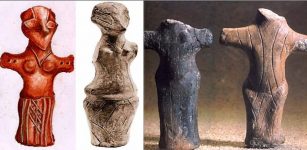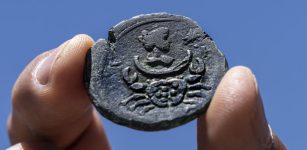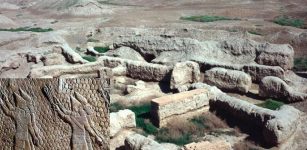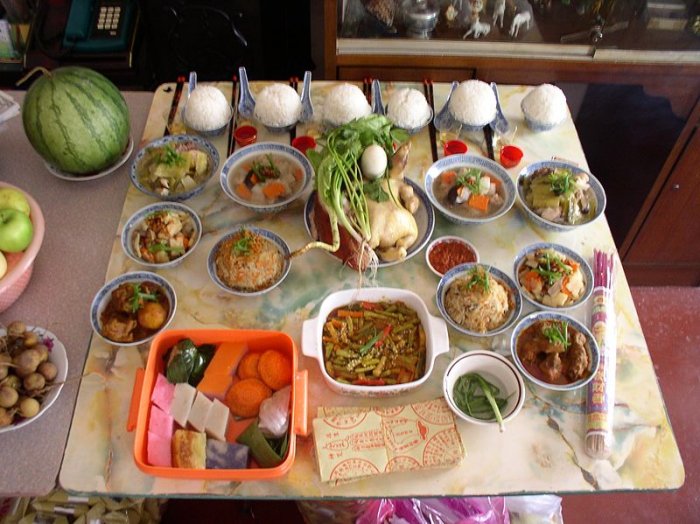Why Is The Hungry Ghost Festival Celebrated In August?
Ellen Lloyd - AncientPages.com - In many Asian countries, people celebrate the Hungry Ghost festival in August. It’s an ancient tradition and a time when people make offerings of food, money, and entertainment to wandering spirits, but what is the true meaning behind this very old festival?
The Hungry Ghost festival celebrated in Thailand. Credit: Adobe Stock - Pongvit
Just like we in the Western world celebrate Halloween and All Souls Day, people in Asia honor their deceased loved ones through the Hungry Ghost festival. The traditions and customs vary from country to country, but it’s a time for worshiping ancestors.
August Is The Ghost Month
According to ancient Chinese folklore, the fifteenth day of the seventh month in the lunar calendar is called Ghost Day. The seventh month is Ghost Month. During this time, ghosts and spirits of deceased ancestors leave the realms of Heaven and Hell and enter the realm of the living.
Ghost month is a sacred period, and the spirits must be treated with proper respect. For example, empty seats must be reserved for the deceased family members when a family has dinner or supper. One must treat the ghosts and spirits of our loved ones as if they are still living.
Food is offered to the ancestors during the annual Hungry Ghost festival prayers. Credit: Public Domain
Many things are prohibited during ghost month. One should not wear clothes with one’s name, not path other people on the shoulder. Whistling is also unwise; children and senior citizens should not go out at night.
In ancient China, people believed in gods and ghosts. “Legend has it that anyone who dies normally could reincarnate while those who are guilty or die accidentally would become ghosts wandering in the mortal world. Some evil spirits even seize the opportunity to disturb the living souls, causing their death in disasters and accidents. As a result, people who die unexpectedly during this period are regarded "have been taken away by ghosts".” 1
How And When Did The Hungry Ghost Festival Begin?
The origin of the Hungry Ghost festival has been debated.
“Some researchers have traced the origin of the Festival to India and its historical connection with the filial piety of Confucianism, as well as the traditions of Buddhism and Daoism. Historically, the Hungry Ghost Festival originated from Buddhism in India.” 2
In China the festival is called Yulanpen. A popular Chinese Buddhist tale originating in the third century C.E. retells how Mulian, a virtuous monk, seeks the help of the Buddha to rescue his mother from hell by performing a chanting ritual.
“The festival has been held since 538 AD with Buddhist rituals established by Emperor Liangwudi in commemoration of ancestors. In other words, filial piety in Confucianism has been upheld through the ritual practices of the aristocracy at the Hungry Ghosts Festival.
Emperors in subsequent dynasties also followed these practices. Since the Tang and Song dynasties (618 – 1279 AD), the story of how Mulian saved his mother has been further popularized through performances in local operas. From the Song dynasty (960 – 1279 AD) onwards, Daoist rituals have also been incorporated into the Hungry Ghosts Festival.
The festival subsequently gained popularity among the commoners who were Daoist worshippers. The meaning of the festival has been expanded from venerating ancestors to commemorating those who lost their innocent lives to misfortune.
Meanwhile, people invented practices where small boats with lit candles were released into the river, and the ships would supposedly float to the “River of Hell” – a place where all spirits of the dead rest. Apparently, these candles would illuminate the darkness of the river, therefore leading the spirits with this light, expiating the sins of the dead, and realizing their souls from purgatory.” 2
People in Japan share similar beliefs, which is why during the Hina Nagashi (doll floating) ceremony, an ancient Shinto ritual, you can see thousands of beautiful dolls of all shapes and sizes, dressed in scarlet and yellow kimono, sitting in boats and drifting out into the ocean.
According to ancient Japanese beliefs, misfortunes can be transferred to a doll. If the doll is set afloat down a river or ocean, it takes all troubles and bad spirits.
Buddhists believe in reincarnation, but it can take a very long time before a person is reborn. According to Chinese beliefs, there is no way to avoid going to Diyu, the Chinese version of hell.
Everyone who dies must end up in Diyu, but the length of the visit depends on the severity of the sins one committed. Once punishment has been served, reincarnation takes place, and one is free to begin a new life in a new physical body or form. God Yama decides when the being’s soul passes from one stage to another.
Many people in China believe one can help spirits escape hell earlier by holding sacrifice ceremonies. By doing so, one can avoid being harassed by these spirits that are lost. There are various ceremonies, but offering prayers, food, drink, burning hell bank notes, and joss paper, also known as ghost or spirit money, is common.
Ghosts, Spirits And Karma In Buddhist Beliefs
Buddhism is a tradition that focuses on personal spiritual development. Bad and good karma depends on us and we are architects of our own fate. Buddhists believe that our good and bad deeds directly create our future experiences.
Reincarnation can be a very long process, and before a person can be re-born, he or she must be judged by God Yama according to the deeds committed in the last life.
The definition of ghosts and spirits is interesting and varies slightly among the local cosmologies of the Buddhist countries in Asia.
Hungry Ghosts Scroll Kyoto National Museum, Kyoto, Japan. Credit: Public Domain
“In the case of the Lao Buddhism, ghosts do not inhabit a realm purely “beyond” and inaccessible through a sort of metaphysical wall, but they are entities that ca be ritually addressed.” 3
Some scholars argue that “the ghost is not simply dead or a missing person, but a social figure, and consequently, one’s own karma is not always the last word and interactions with the living can establish new relationships with ghosts.
The latter are most clearly reflected in Buddhist rituals that aim at caring for ghosts and supporting their reintegration back into the cycle of rebirth.3
The Hungry Ghost festival has a much deeper meaning than showing respect for the deceased. It’s also celebrated to help ghosts be released and enter the living world as part of reincarnation.
Updated on August 28, 2022
Written by Ellen Lloyd – AncientPages.com
Copyright © AncientPages.com All rights reserved. This material may not be published, broadcast, rewritten or redistributed in whole or part without the express written permission of AncientPages.com
Expand for references- Your Chinese Astrology
- Chan, Selina Ching. "Heritagizing the Chaozhou Hungry Ghosts Festival in Hong Kong." In Chinese Heritage in the Making: Experiences, Negotiations and Contestations, edited by Maags Christina and Svensson Marina, 145-68. Amsterdam: Amsterdam University Press, 2018. doi:10.2307/j.ctt2204rz8.9.
- Ladwig, Patrice. "Visitors from Hell: Transformative Hospitality to Ghosts in a Lao Buddhist Festival." The Journal of the Royal Anthropological Institute18 (2012): S90-102.
More From Ancient Pages
-
 Mysterious Vinca Culture Is Among The Most Advanced Prehistoric Societies In Europe
Civilizations | Jun 23, 2020
Mysterious Vinca Culture Is Among The Most Advanced Prehistoric Societies In Europe
Civilizations | Jun 23, 2020 -
 The Maasai Legend Of Hero Lakalanga And His Ancient Footprints
African Mythology | Jul 12, 2019
The Maasai Legend Of Hero Lakalanga And His Ancient Footprints
African Mythology | Jul 12, 2019 -
 Mysterious Ancient Tracks In Rock, Strange Legend And Hidden Treasure – A Puzzle From Arkansas
Featured Stories | Sep 3, 2024
Mysterious Ancient Tracks In Rock, Strange Legend And Hidden Treasure – A Puzzle From Arkansas
Featured Stories | Sep 3, 2024 -
 Did Etruscans Solve The Mystery Of Synchronicity And The Secret Language Of The Stars?
Ancient Mysteries | Jul 5, 2018
Did Etruscans Solve The Mystery Of Synchronicity And The Secret Language Of The Stars?
Ancient Mysteries | Jul 5, 2018 -
 On This Day In History: Archbishop Thomas Becket Murdered – On Dec 29, 1170
News | Nov 29, 2016
On This Day In History: Archbishop Thomas Becket Murdered – On Dec 29, 1170
News | Nov 29, 2016 -
 Ancient Secrets Of Karelia: Mysterious Vottovaara Mountain Was Sacred To The Sami People
Featured Stories | Apr 5, 2017
Ancient Secrets Of Karelia: Mysterious Vottovaara Mountain Was Sacred To The Sami People
Featured Stories | Apr 5, 2017 -
 Rare And Tiny Ancient Stamps Found In Falster May Show The Way To An Unknown King’s Home
Archaeology | Jul 26, 2023
Rare And Tiny Ancient Stamps Found In Falster May Show The Way To An Unknown King’s Home
Archaeology | Jul 26, 2023 -
 Unique Geoglyphs In Torgay, Kazakhstan – Destroyed
Civilizations | Sep 5, 2015
Unique Geoglyphs In Torgay, Kazakhstan – Destroyed
Civilizations | Sep 5, 2015 -
 Hayk – Legendary Patriarch And Founder Of Armenia Who Defeated King Bel Of Babylon
Featured Stories | Feb 10, 2022
Hayk – Legendary Patriarch And Founder Of Armenia Who Defeated King Bel Of Babylon
Featured Stories | Feb 10, 2022 -
 Rare 1,850-Year-Old Bronze Zodiac Coin Discovered During Underwater Survey Off Israel’s Coast
Archaeology | Jul 27, 2022
Rare 1,850-Year-Old Bronze Zodiac Coin Discovered During Underwater Survey Off Israel’s Coast
Archaeology | Jul 27, 2022 -
 LIDAR Discovery Of Ancient City With 10,000 Mounds On The Pacific Island Of Tongatapu
Archaeology | Apr 16, 2024
LIDAR Discovery Of Ancient City With 10,000 Mounds On The Pacific Island Of Tongatapu
Archaeology | Apr 16, 2024 -
 How Saul, A Farmer Boy Became The First King Of Israel
Featured Stories | Jan 20, 2022
How Saul, A Farmer Boy Became The First King Of Israel
Featured Stories | Jan 20, 2022 -
 Famous Benin Bronzes Were Made Of German Brass – Study Reveals
Archaeology | Apr 6, 2023
Famous Benin Bronzes Were Made Of German Brass – Study Reveals
Archaeology | Apr 6, 2023 -
 Large Fortress And Wall Uncovered On The Nile Delta Mark Power Of Egypt’s Canal Of the Pharaohs
Archaeology | Dec 29, 2017
Large Fortress And Wall Uncovered On The Nile Delta Mark Power Of Egypt’s Canal Of the Pharaohs
Archaeology | Dec 29, 2017 -
 Surprising Discovery Of Box Filled With Neanderthal Bones From Cova Simanya Donated To Museum
Archaeology | Sep 21, 2023
Surprising Discovery Of Box Filled With Neanderthal Bones From Cova Simanya Donated To Museum
Archaeology | Sep 21, 2023 -
 Quest For The Magical Healing Flower In The Garden Of Bakavali Led To A Love Story
Featured Stories | May 28, 2019
Quest For The Magical Healing Flower In The Garden Of Bakavali Led To A Love Story
Featured Stories | May 28, 2019 -
 Rosetta Stone – Artifact That Solves The Riddle Of Egyptian Hieroglyphics
Artifacts | Sep 28, 2015
Rosetta Stone – Artifact That Solves The Riddle Of Egyptian Hieroglyphics
Artifacts | Sep 28, 2015 -
 Lost Kingdom Of Mari – Once Important Commercial And Political Center Of Mesopotamia
Featured Stories | Jan 25, 2018
Lost Kingdom Of Mari – Once Important Commercial And Political Center Of Mesopotamia
Featured Stories | Jan 25, 2018 -
 Remarkable Discovery – 22,000-Year-Old Drag-Marks In New Mexico Are The Earliest Evidence Of Transport Vehicles Ever Found!
Archaeology | Feb 24, 2025
Remarkable Discovery – 22,000-Year-Old Drag-Marks In New Mexico Are The Earliest Evidence Of Transport Vehicles Ever Found!
Archaeology | Feb 24, 2025 -
 Archaeologists Unearthed Alabaster Statue Of Queen Tiye In Luxor, Egypt
Archaeology | Mar 24, 2017
Archaeologists Unearthed Alabaster Statue Of Queen Tiye In Luxor, Egypt
Archaeology | Mar 24, 2017




